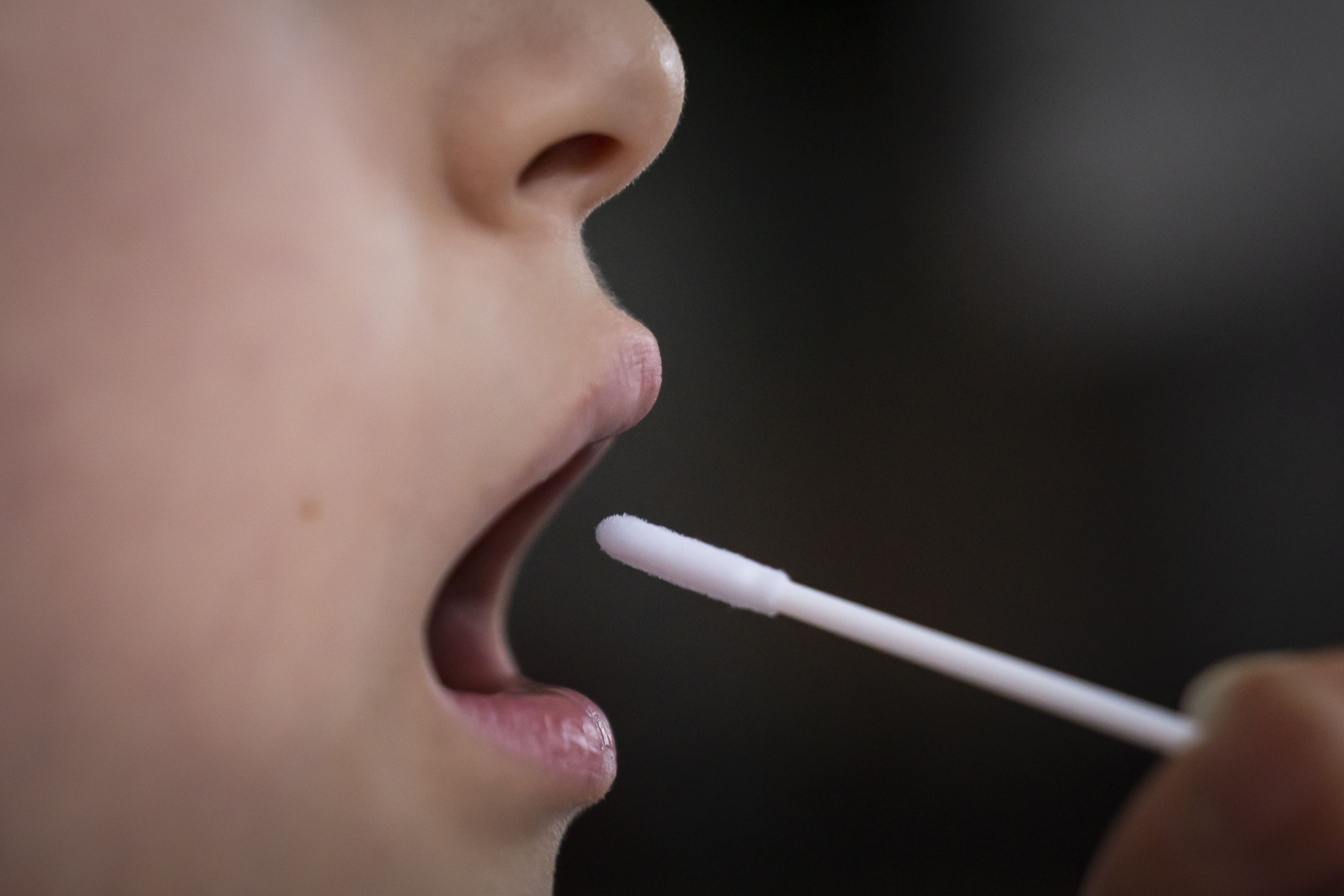Covid-19 infections fall across the UK for second week in a row
The latest wave has peaked well below levels reached earlier in the year.

Covid-19 levels have fallen in all four UK nations for the second week in a row, with infections in England dropping below one million for the first time since mid-September.
Hospital numbers are also continuing to decrease, in fresh evidence the latest wave of the virus has peaked.
Health experts hailed the autumn booster vaccine programme as helping drive down infections – though nearly a quarter of over-70s have yet to receive a fresh jab.
The total number of people in private households in the UK testing positive for coronavirus stood at 1.1 million in the week to November 8, down 27% from 1.5 million in the previous week, according to the Office for National Statistics (ONS).
The recent wave looks to have peaked at just over two million infections in mid-October.
This is well below the peaks seen earlier in the year, which saw infections climb to nearly four million in July and just under five million in March.
Sarah Crofts, ONS deputy director for Covid-19 infection survey analysis, said: “Though it may be too soon to say the recent wave of infections is behind us, we have seen a decrease across the whole of the UK for a second week.
“Infections in England are now under a million and at the lowest rate in seven weeks. We’ve also seen a decrease across every English region, and in every age group.
“Whilst it is reassuring to see these decreases, we will continue to monitor the data closely over the winter months.”
In England, the number of people testing positive for coronavirus in the week to November 8 was 940,700, or around one in 60 people, down from 1.3 million the previous week, or one in 40.
This is the first time infections in England have dropped below one million since the week to September 17.
England also has the lowest prevalence of the virus of all four UK nations.
Scotland has seen infections fall to 97,500, or one in 55 people, down from 107,300, or one in 50.
In Wales, 56,000 people were likely to have Covid-19 in the latest survey, the equivalent of one in 55 people, down from 72,400, which was one in 40.
In Northern Ireland, the latest estimate for infections is 34,200, or one in 55 people, down from 39,900, or one in 45.
The proportion of 50 to 69-year-olds in England likely to have had Covid-19 in the week to November 8 was 2.04%, or around one in 50 people, the ONS said.
This was the highest rate among all age groups, just above the estimate of 2.01% for 35 to 49-year-olds, which is also the equivalent of one in 50.
The ONS infection survey is the most reliable measure of the prevalence of coronavirus and is based on a sample of swab tests from households across the UK.
There is a slight lag in the reporting of the data, due to the time it takes for the survey to be compiled.
Separate NHS figures published this week show the number of people in hospital with coronavirus has been on a downwards trend for nearly a month.
Some 5,010 patients testing positive for Covid-19 were in hospital in England on November 16, down 11% from the previous week and down 53% from the recent peak of 10,688 on October 17.
Scotland, Wales and Northern Ireland are also continuing to see a fall in Covid-19 patients after a small October peak.
Hospital admission rates in England stood at 5.0 per 100,000 people in the week to November 13, down from 5.4 and the fifth consecutive weekly fall.
Dr Mary Ramsay, director of public health programmes at the UK Health Security Agency (UKHSA), said: “The success of the booster vaccine programme so far means that Covid-19 cases and hospitalisations are still declining across the UK.
“Vaccination remains the best way to protect yourself, your family and the NHS, particularly as we head into winter, so we continue to urge anyone who has not had their booster this autumn to do so as soon as possible.”
Nearly a quarter (22.2%) of people aged 80 and over in England have yet to receive an autumn booster dose of Covid-19 vaccine, along with a similar proportion of 75 to 79-year-olds (21.5%) and 70 to 74-year-olds (24.5%).
All people aged 50 and over are able to book an appointment for the booster, providing they had their last jab at least three months ago.
Doses are also available to frontline health and care workers, pregnant women and people with weakened immune systems.
The UKHSA data, which covers vaccinations up to November 13, also shows that nearly a third (32.0%) people aged 65 to 69 have not had a booster, along with almost a half (46.5%) of 60 to 64-year-olds.
Bookmark popover
Removed from bookmarks